- Home
- Stephen Hunter
The Second Saladin Page 9
The Second Saladin Read online
Page 9
The nights were very cold. We huddled together in caves or ravines and were still afraid to light fires. It was at these moments I felt the most alone. I wasn’t really a Kurd. I was an American, a foolish one, caught where she had no business to be. I didn’t think we really had a chance. We were on foot, running out of food and energy. There were no donkeys. We had come a terrible distance, we had a terrible distance to go and we were being pursued by men in machines who wanted to kill us.
I heard some men talking. They said we were doomed. It was all over. We’d never get out. Ulu Beg said no. He said we had friends. Jardi’s friends. Jardi’s friends would help us.
We were almost there. I asked Ulu Beg how much farther? He pointed to a gap just ahead between mountains.
Ulu Beg asked me to come with him to talk to the Iranians.
We went down the trail and over the dusty rock, the two of us. The trail began to rise to the pass and we climbed between the forbidding cliffs. I fought to keep up. I wondered how the children would make this last, hardest part of the climb.
We were so close! The nightmare would soon be over! But I was also terrified that something would happen, so late, so close to survival.
We came over the crest. The land here was scorched. Nothing grew. For miles and miles it looked dead. There was no vegetation, no anything. It was the defoliated zone where the Iraqis had poured chemical poisons on the earth to prevent border crossings and resupply from Iran. I looked and could see where a stream had been cemented over.
We went ahead. If a Russian plane or helicopter came and caught us in the open, we’d be killed. Still, we didn’t have the luxury of waiting for nightfall. We picked our way through this wasteland until at last, several hours later, I could see the wire fence and the border station—and green plants again. The station was a low cinderblock building, with the Shah’s flag billowing on a pole near it. There were several military vehicles parked there too.
We raced to the gate. They had seen us coming and were ready. The officer in charge was a young major of very stiff and correct bearing. His name was Major Mejhati—he wore it proudly on a tag on the chest of his battle tunic. His uniform was heavily starched.
He asked me in Farsi if I was an American. I said yes. He thought I looked American, even though I was dressed like a Kurd. He had been in America for a year and knew what American women looked like.
I explained to him that 100 people would be coming shortly, that some were wounded, some were children and all were hungry and exhausted. They were being pursued by Iraqis in Russian tanks, I told him.
He asked me what part of America I was from. I don’t know why he asked that. Anyway I told him.
He considered Boston a lovely town. He told me that he’d been to some Army college in Kansas. He told me he really liked America, America was a very great country and that he wished Iran was more like America.
I was afraid we’d be there for hours. Iranians love to talk and move slowly. They hate to be confronted with an actual reality.
Then he asked if these Kurds were of the Pesh Merga, the mountain fighters making a war against the Iraqis. I said yes. He said they could admit no Kurds. It was a new policy. He said he would be glad to have me come into his country but it was a new policy and the border was now closed to the Pesh Merga.
I wasn’t sure I’d understood him. I thought I’d misheard. I wasn’t sure what he was talking about. I tried to get my composure back.
“There’s an arrangement,” I said. “Between the governments. Between my government and your government and the Pesh Merga.”
“There is no arrangement,” he said. Several of his officers and soldiers had their guns out and came over to us. They looked at us rudely.
I pointed to Ulu Beg. I remember that I said, “This man is famous. This is the famous Ulu Beg. He is a high officer in the Pesh Merga.”
Major Mejhati said the American lady was free to come into his country but that the Kurd was not. He said he’d have his men shoot if the Kurd didn’t move away from the border.
I told him there had been an American officer with us, an important man, with high connections in Tehran ….
But they told us that all the Americans were gone.
Ulu Beg turned and began to walk back to his people.
I ran after him.
Chardy set the manuscript down. She was sitting across from him. She had not even taken her coat off.
“You should have crossed the border, Johanna. That was a foolish thing to do.”
“I couldn’t, Paul. Keep reading.”
We ran all that day and most of the next. We headed north, farther into the mountains. Our new goal was Turkey, where the border was not heavily guarded. It was a bitter solution to our problem, since the Kurds—and most of the Middle East—hate nothing more than the Turks, who for centuries, in their Ottoman Empire, ruled in corrupt greed.
The plan was then to continue north, into Russia. I knew that in his mind Ulu Beg was retracing the journey of Mullah Mustafa Barzani, who fled Iran after the collapse of the Kurdish republic at Mahābād in 1947. Barzani had gone into exile for 11 years in the Soviet Union. The irony of fleeing the Iraqis—who were led and supplied by the Russians—for Turkey and then Russia, did not strike me at the time. Now it seems to illustrate to me a basic principle of Middle Eastern history and politics: ideology means nothing.
Finally, it was the sixth day, in the morning. We had found some caves and at last dared light a fire. We had even found a spring that was not cemented over.
Somebody turned on the radio—it was a standard procedure, for Jardi, as the Kurds called him, had always tried to make his contact with Rezā’iyeh in the morning—and suddenly, where for five days there had been nothing, there was a signal.
There was, as I understand, a certain code sequence to be gotten through before communications commenced. I heard Ulu Beg speaking in his awkward English.
“Fred to Tom,” he was saying. “Fred to Tom.”
The radio, a Russian thing like all the equipment Paul had brought, hissed and crackled.
I heard English words—“Tom to Fred, Tom to Fred”—and recognized the voice. It was Paul Chardy’s.
“Do you remember that part, Paul?” she asked.
It was so still in the room. Chardy looked over at her. At last he said, “Yes, I remember,” and turned back to the pages.
We waited in the clearing. The helicopters would come at four, Paul Chardy had said. There would be six of them, and they’d have to make two or three sorties to get everybody out. It had to be orderly, he said, no panic, no crowding, and it would take some time but they’d get everybody out.
The men were praising Allah the Merciful for their deliverance but Ulu Beg said to praise Jardi and his friends from America.
We seemed to wait a year. It was really only a few hours. By now the skies had cleared and the sun was very hot. On higher peaks snowcaps reflected back at us. A few scrub oaks stood about in the clearing.
The people gathered in these few trees and I could see them laughing and lounging about, the bright colors of their clothes showing through the brown branches.
I had gone with Ulu Beg to a ridge above the clearing where we took some cover behind a group of rocks. I asked him if he was expecting trouble.
“I always expect trouble,” he said.
His face was caked with dust. The lips were cracked and almost white, his eyes a tired blue. He had taken his turban off and I was struck by his hair, which was almost a brownish blond. He had very powerful eyes.
He told me to go down below to wait for the helicopters.
“I will stay,” I said.
We heard the helicopters before we saw them. They rose over the crest of the hill. It was an extraordinary sight for me. I stared at them in almost dumb disbelief.
There were, as Paul had promised six of them. They hovered in the sky. On the ground, Amir Tawfiq ignited a green smoke bomb. A pillar of green rose through the t
rees.
The helicopters were gray things, and had the bull’s-eye Royal Iranian insignia on them. Their noses glittered in the sun because of all the glass or plastic. They were much bigger than I’d imagined. They generated a great deal of noise. They were in a formation of two lines, three each. They lowered themselves from the sky, dark and big. I could see the pilots in helmets and sunglasses behind the windshields.
Their rotors pulled up the dust, which spun and whirled. It rose and stung my eyes. Green smoke whipped through the air. Wind beat against us and I could see the leaves of the trees shaking off.
I could see the two little boys, Apo and Memed, sitting off to one side. I could see Amir Tawfiq and his wife, whose arm was heavily bandaged. I could see Kak Farzanda, the old man, waiting patiently. I could see Haji Ishmail, who had been a porter in Baghdad before leaving to join the fight in the mountains. I could see Sulheya, the old woman, in her black scarf, who had told me stories and myths that I had recorded, and her daughter Nasreen, who did the cooking. I could see … well, I could see them all, people I’d lived with for seven months and grown, as much as is possible for a foreigner, a foreign woman even, to love.
The helicopters hung over the trees and for a while I did not quite understand what was happening. I stood, quite stupidly. There was a commotion in the dust down below.
Ulu Beg had turned and I heard him say, “Russians.”
Men in the helicopter doorways were shooting into the trees. Dust flew. I could see tree branches breaking. Links of color began to spit from the guns the men were shooting. It was as if they were hosing the trees with light. Sparks flew and fires started.
Beside me, Ulu Beg fired with his Russian gun. I could see a helicopter tilt as the glass of the windshield broke. Kill them, I felt myself thinking. The machine began to fall, tilting crazily. It broke up when it hit. Its blade thrashed at the earth. It exploded into a huge oily wave of flame which spilled through the clearing. I was knocked back.
The men in the helicopters were shooting at us. Bullets were hitting rocks and banging off. The stench of burning gasoline reached my nose. I was so mixed up I almost walked into the terrible panorama beneath us, but Ulu Beg grabbed my arm and pulled me down the far side of the ridge to a dark ravine. We tumbled down its side, sliding through the rocks. In my sheer terror, I did not feel any pain. We moved deeper along it until pressed into a dark crevice. I could see a helicopter overhead. It hung there for the longest time. Ulu Beg had his Russian gun ready. But then the helicopter rose from the sky and vanished. Two columns of smoke rose in the sky, one huge and black and the other green.
“Did the Russian tell you about that?” Johanna asked him as he laid down the last page.
“No,” Chardy said. “Not the details.”
“Was the ambush the part of the other thing? Was it part of some larger betrayal? Were you under orders? All those months when I loved you, when you fought with the Kurds—did you know? Did you know how it would end?”
“Of course not.”
“But that was you on the radio?”
Chardy remembered it, but not very well. It was a Soviet LP-56 model, with double amplification and some kind of frequency scanner thing, standard issue in Soviet armored units. He remembered the microphone in his hand, a heavy, blocky thing. They were way behind in radios, he remembered thinking. He had felt so numb.
“What?” she said.
“Yes,” he said.
He remembered the KGB colonel, Speshnev, had been pleased with his performance.
“Why, Paul?” she said quietly.
“I—it was very important to them to kill or capture Ulu Beg,” he said.
“But why did you help them?”
“I didn’t have any choice.”
“Did they torture you?”
“They had some fun. But it wasn’t that.”
“Tell me, Paul. Why?”
“Johanna, I can’t tell you. And I can’t change a thing now. I guess I’m really here to try and make it up.”
“Nobody made anything up for the Kurds.”
“Johanna, he’s here to kill. Suppose some more children get stuck in the crossfire? Suppose it’s another massacre? Suppose somebody innocent—”
“We armed Ulu Beg. We supported him. We urged him on. Paul, nobody’s innocent.”
“Johanna—”
“Paul, get out of here. I can’t help you, I won’t help you. What’s going to happen will happen. Insha ’allah: God’s will. The Kurds say, ‘Do not hesitate to let the vengeance fall on the head of your enemy.’”
He looked at her.
She said, “Get out, Paul, I’m so tired.”
He stood.
“Don’t ever try to see me again. I swear I’ll call the police.”
Chardy stood outside her house in the cold. He wondered if they’d followed him and after a few minutes the van pulled up. He walked across the street and got into it.
“How did it go?” asked Lanahan.
“Terrible,” he said, sitting across from the boy in back. The van started and he looked out the window as lights and dark houses fled by.
“Who the fuck does she think she is? What the fuck does she think this is all about? Okay, she won’t help us, we’ve got some tricks we can throw her way. We’ll—”
Chardy had the boy by the thick lapels of his raincoat and rammed him against the side of the van, feeling the head slap hard against the glass of the window.
“Hey, hey.” The wizard in front turned, horrified. “Take it easy, you guys.”
But Chardy planted a forearm against the boy’s throat, pinning his neck against the seat, and told him to watch his fucking mouth. Then he released him and sat back.
The boy shook his head woozily and touched his throat. Fear showed in his wide eyes and trembling fingers, but the fear turned to rage.
“You are an animal,” he said.
Chardy looked out the window, into the dark.
They returned to the hotel sullenly. It was nearly midnight. Chardy went to the bar and had a few more beers. He looked around the room—it was pretty packed—for the biggest man he could see, found him, and went to pick a fight. But the man turned out to be timid, and left quickly, and people stayed so far from Chardy after that that he finally decided to go to bed.
He slept poorly, thinking of helicopters.
The phone roused him early the next morning. He blinked awake in the gray light in a messy room. He had a headache and a sour taste in his mouth. He answered.
“Paul?”
“Yes?”
Her voice held promise of a question, but did not ask it. He gripped the phone so tight he thought he’d shatter the plastic.
She said, “I have to see you.”
“Why?”
“Paul, you son of a bitch. Why didn’t you stay in Chicago?”
He looked at his Rolex to discover it was 7:30.
“I haven’t slept,” she said. “I seem to be a little nuts. I did some speed a little while ago.”
“Take a nap, for Christ’s sakes. Then meet me someplace in the open. Outside.”
“By the river. By the boathouse. Off Boylston. Anyone can tell you where it is. At noon.”
“I’ll see you then.”
“Paul. Please come alone. Don’t bring any little men in overcoats.”
9
Ulu Beg sat next to a black man. He’d learned that the black men were best. Between El Paso and Fort Worth, an endless flat monotony, he had sat with a white man who talked and talked. The tales were filled with unknowable references—the Spurs, mortgage rates, gas prices, the Oilers, Johnny Carson, the PTA, waterfront lots, barking dogs—that troubled his brain. He kept a smile on his face and nodded eagerly for the hours of the journey, and when at last he was freed found himself waxen, shaky, slimy with perspiration.
So Ulu Beg looked for black men. You could sit next to a black man for hours and he would say nothing. He would not see you. He would sit encased in
his own furious silence, absorbed and bitter. Ulu Beg was somehow drawn to them. Were they America’s Kurds? For, like the Kurds, they were a manly and handsome people, intent upon preserving their own ways. They had a dignity, an Islamic stillness he could understand. And they were skeptical of the America around them, he could sense that too. Yet they had never retreated to the mountains to fight. He wondered why. He thought it might have to do with the music they always listened to, the huge radios they carried with them everywhere.
Beyond the glass of the bus window the state of Arkansas rolled past, flat and green.
The black man stirred. He was a large and silent man with small angry eyes in his huge face. He rattled the newspaper he was reading. Ulu Beg could see in black letters:
MAN TAKEN BY UFO FOURTH TIME
SALLY, BURT: SECOND TIME AROUND?
CHERYL LADD: DAVID ABUSED ME
Ulu Beg tried to get comfortable. He was not used to sitting for long periods of time. He’d sat still very seldom in his life. He shifted his pack, which he carried in his arms rather than storing on the overhead rack, squirming awkwardly. His elbow poked into the black man’s outstretched newspaper.
“Sorry,” he said, drawing into his seat even farther.
The black man made an elaborate ceremony of turning the page, claiming for himself even larger amounts of space.
Ulu Beg looked past him, out the window again.
Arkansas. After Arkansas, Kentucky, Tennessee. Then Ohio. Then …
They were strange names and stranger places. He almost didn’t dare say them, even though the drilling had improved his English greatly; and he had memorized them, that curious, shambling route up through the middle of America, through dirty towns of no distinction that all looked the same. He’d been on the journey now for many days and would continue for many more.
“There is no hurry,” they had told him. “Caution is better than risk. Three certain steps back are better than one risky step forward.”

 Point of Impact
Point of Impact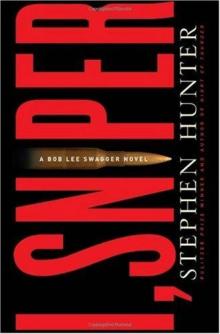 I, Sniper
I, Sniper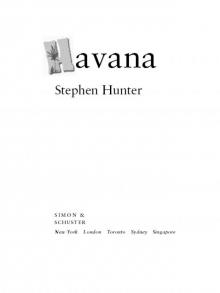 Havana
Havana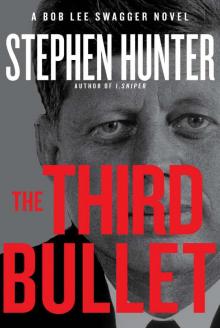 The Third Bullet
The Third Bullet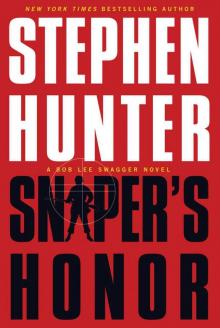 Sniper's Honor: A Bob Lee Swagger Novel
Sniper's Honor: A Bob Lee Swagger Novel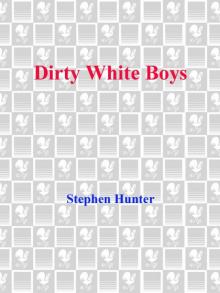 Dirty White Boys
Dirty White Boys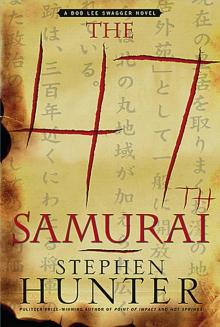 The 47th Samurai
The 47th Samurai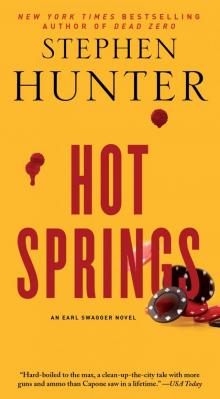 Hot Springs
Hot Springs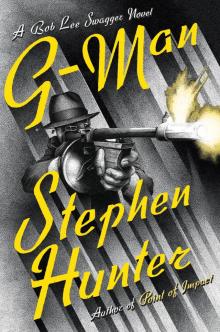 G-Man
G-Man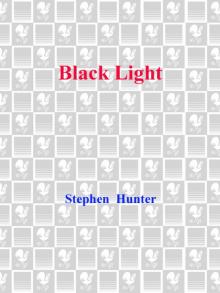 Black Light
Black Light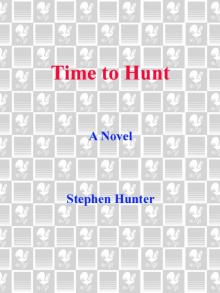 Time to Hunt
Time to Hunt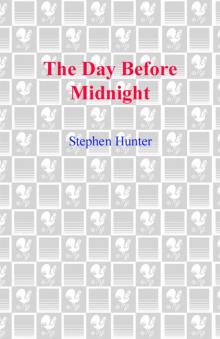 The Day Before Midnight
The Day Before Midnight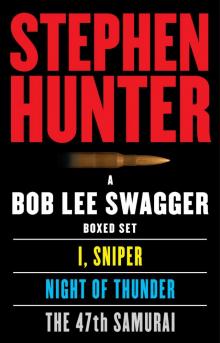 A Bob Lee Swagger Boxed Set
A Bob Lee Swagger Boxed Set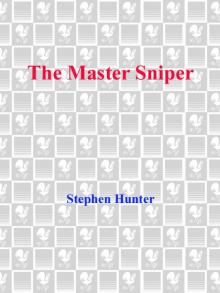 The Master Sniper
The Master Sniper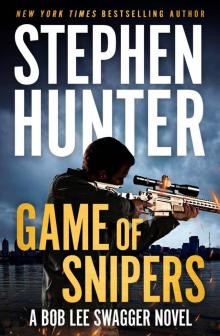 Game of Snipers
Game of Snipers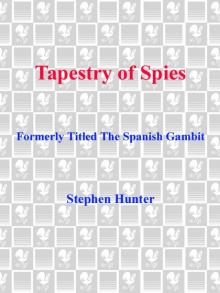 Tapestry of Spies
Tapestry of Spies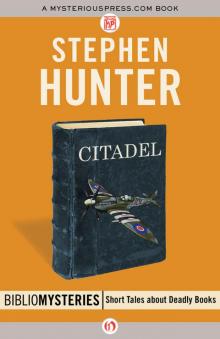 Citadel
Citadel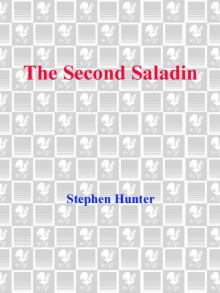 The Second Saladin
The Second Saladin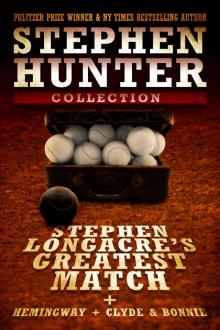 Stephen Longacre's Greatest Match
Stephen Longacre's Greatest Match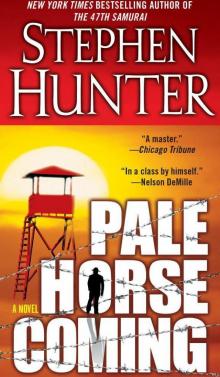 Pale Horse Coming
Pale Horse Coming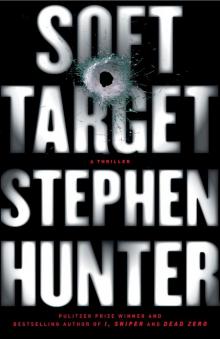 Soft Target
Soft Target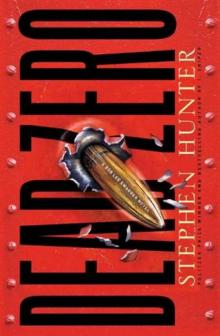 Dead Zero
Dead Zero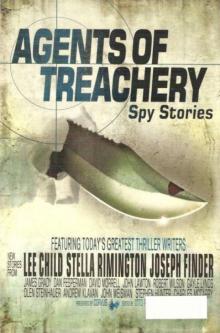 Casey at the Bat
Casey at the Bat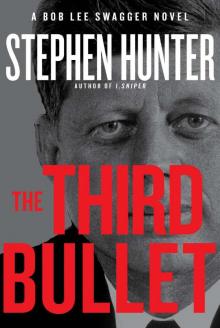 The Third Bullet bls-8
The Third Bullet bls-8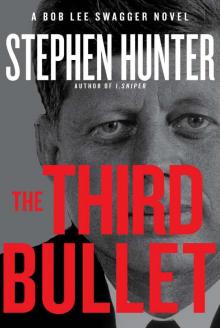 The Third Bullet: A Bob Lee Swagger Novel
The Third Bullet: A Bob Lee Swagger Novel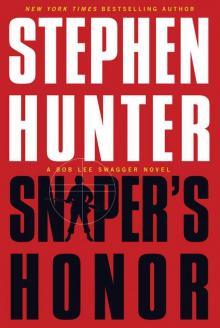 Sniper's Honor
Sniper's Honor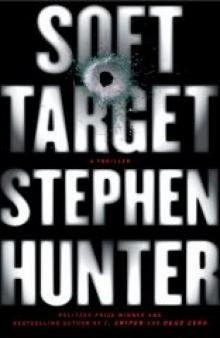 Soft target rc-1
Soft target rc-1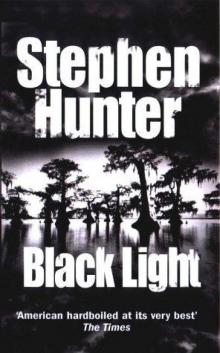 Black Light bls-2
Black Light bls-2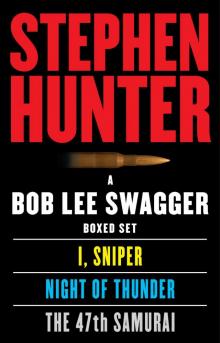 A Bob Lee Swagger eBook Boxed Set: I, Sniper, Night of Thunder, 47th Samurai
A Bob Lee Swagger eBook Boxed Set: I, Sniper, Night of Thunder, 47th Samurai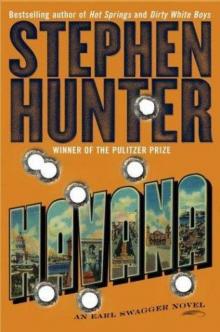 Havana es-3
Havana es-3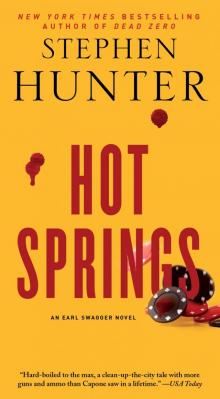 Hot Springs (Earl Swagger)
Hot Springs (Earl Swagger)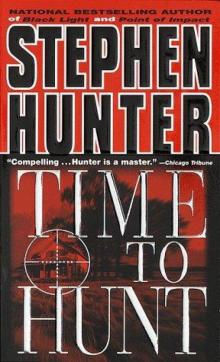 Time to Hunt bls-1
Time to Hunt bls-1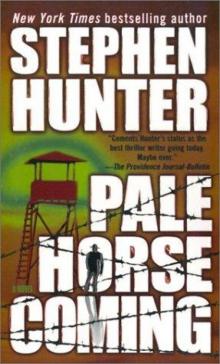 Pale Horse Coming es-2
Pale Horse Coming es-2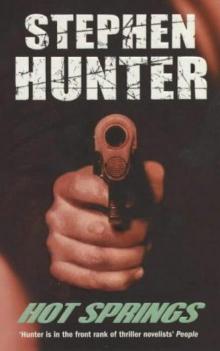 Hot Springs es-1
Hot Springs es-1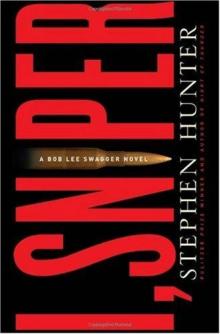 I, Sniper: A Bob Lee Swagger Novel
I, Sniper: A Bob Lee Swagger Novel